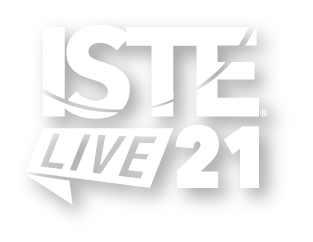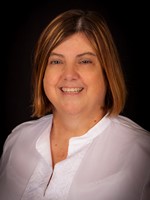

Do You Compute With Physical Computing? |
Participate and share : Poster
Brenda Bass Laurie Green
Learn the definition of physical computing and see examples of benefits in the classroom. Methods for evaluating physical devices to determine appropriateness for integration within their curriculum will be shared along with integration ideas and resources.
| Audience: | Curriculum/district specialists, Teachers, Technology coordinators/facilitators |
| Skill level: | Beginner |
| Attendee devices: | Devices useful |
| Attendee device specification: | Laptop: Chromebook, Mac, PC Tablet: Android, iOS, Windows |
| Topic: | Computer science & computational thinking |
| Grade level: | PK-5 |
| Subject area: | Computer science, STEM/STEAM |
| ISTE Standards: | For Educators: Learner
|
The purpose of this poster session is to expose and immerse Educators to the advantages that Physical Computing brings to the classroom and how it can be leveraged to address equity issues for all learners. The objective is to have attendees leave with a better understanding of what physical computing is and how they can leverage it in their classrooms. A website will be provided with resources and lesson ideas.
Schulz, Sandra, and Niels Pinkwart. “Physical Computing in STEM Education.” Proceedings of the Workshop in Primary and Secondary Computing Education on ZZZ - WiPSCE '15, 2015, doi:10.1145/2818314.2818327.
Atman Uslu, Nilüfer, and Yasemin Koçak Usluel. “Predicting Technology Integration Based on a Conceptual Framework for ICT Use in Education.” Hellenic Journal of STEM Education, vol. 1, no. 1, 9 Oct. 2019, pp. 1–15, www.researchgate.net/publication/340266590_A_Conceptual_Framework_for_Computational_Pedagogy_in_STEAM_education_Determinants_and_perspectives, 10.1080/1475939x.2019.1668293. Accessed 26 Oct. 2019.
Csizmadia, Andrew, et al. “Integrating the Constructionist Learning Theory with Computational Thinking Classroom Activities.” Informatics in Education, vol. 18, no. 1, 2019, pp. 41–67., doi:10.15388/infedu.2019.03.
Przybylla, Mareen, and Ralf Romeike. “Physical Computing and Its Scope - Towards a Constructionist Computer Science Curriculum with Physical Computing.” Informatics in Education, vol. 13, no. 2, 2014, pp. 225–240., doi:10.15388/infedu.2014.14.
Wangenheim, Aldo Von, et al. “Motivating Teachers to Teach Computing in Middle School ‑ A Case Study of a Physical Computing Taster Workshop for K-12 Teachers.” International Journal of Computer Science Education in Schools, vol. 1, no. 4, 2017, pp. 35–49., doi:10.21585/ijcses.v1i4.17.
https://www.edweek.org/ew/articles/2019/01/23/physical-computing-connects-computer-science-with-hands-on.html
https://www.vernier.com/2019/04/22/how-physical-computing-can-help-your-elementary-and-middle-school-students/
https://www.iste.org/explore/Computer-Science/Make-CS-accessible-to-all-students-with-physical-computing

Brenda Bass works for BootUp as a Professional Development Facilitator partnering with school districts across the US to train/support elementary teachers to implement coding in their classroom. She is a retired teacher with over 30 years of teaching experience, most recently as the STEAM Lab Teacher in Texas where she taught K-5 coding, STEAM challenges and physical computing to support science standards. She was also the robotics sponsor. Prior to the Lab, she was a Digital Learning Specialist supporting multiple campuses with technology integration, facilitating Professional Development and supporting coding clubs. Brenda has presented at TCEA and ISTE.

Amazing Learning Activities with Google Drawings
Engaging ELA Activities With Google Docs
Literacy Loves Robots